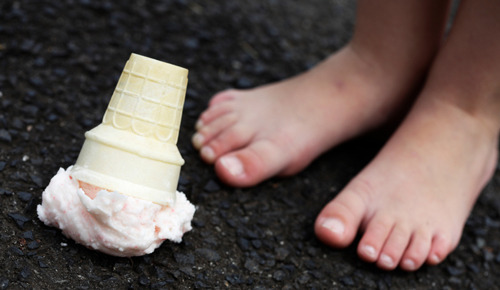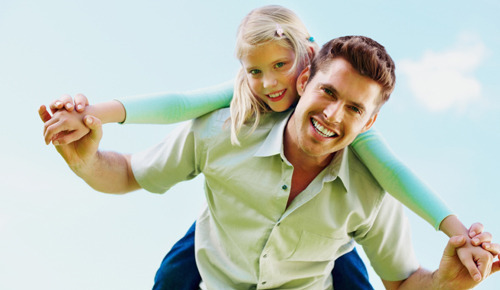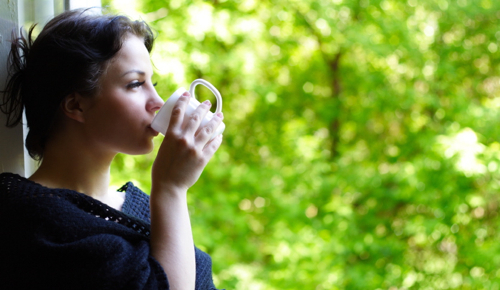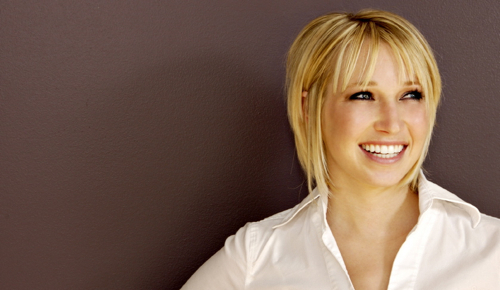Joshua Becker's Blog, page 152
December 17, 2010
Jessica's Story
I think it's surprising how many positive e-mails I receive that begin like this, "You probably hear this a lot, but I just wanted to say thank you…" I always reply with the exact same response, "I haven't received so many that I don't appreciate yours…" And I truly mean it.
Jessica Hall looked up my e-mail address and sent me this heart-warming and inspirational story. It was so good I asked if I could share it with you. She said, "Yes." So, here it is:
I just wanted to let you know that my husband and I really enjoy your blog. I would have never been interested in the world of minimalism had I not seen your blog. It's unreal how it has changed our lives and way of thinking.
We started a purge of our home 6 months ago, the first time we did it, we were not really good, it was hard to let go of things and we really made no impact. However as we dug deeper into your blog and other blogs, we began having conversations about the life we want to live, about what is truly important to us, how we want to raise our daughter and so on….then we went back at it.
We were amazed at how much easier it was to unload things and boy, did we get rid of tons… and we are not even pack rats, we are usually clean and organized. We spent months doing this, it was such a long process and stressful at times, but only because of the mess we created in our home. We were tired of maintaining things, it was taking away from our time together, I didn't want my down time to be spent doing laundry or cleaning, I wanted to hang with my husband and daughter…or go out and so on.
We went through our clothes, books, dvds, paperwork, photos, everything. We got rid of extra dishes and silverware. We also took this opportunity to turn our home into a green home as much as possible. We even got rid of our microwave, we needed the counter space and really nothing good comes of the microwave except heating up food, which we can do on the stove. We got rid of all our laundry baskets but 1, the rule is, when it's full we do laundry right away, less laundry builds up….we got rid of one of our computers, we tried to get rid of cable, but due to needing Internet and the phone the deal made sense to keep it. But we did get rid of the DVR (which was a big move). We also decided to no longer buy crap items just because they are inexpensive, we wait and save a bit more and buy an item that is of better quality – it gets old tossing Ikea furniture because it craps out on you in a few years. Our bedroom is now down to our bed and a dresser, we took out the TV and other items. It's so nice to wake up to such an open and clean room. We got rid of the amount of towels we had as well as sheets. You name it we did it (sorry I am rambling)….
I could go on and on, I hope this made sense. We tell our friends our story and they often look at us like we are crazy. But then they see how the change has made our life less stressful and more balanced and they ask us what they should do….
Thanks for doing what you do and sharing your story! It has made a difference for me and my family!!
Peace~ Jessica
If you ask me, you can never receive that e-mail too many times…
***
I did want to take a personal moment just to thank each of you for being a reader of Becoming Minimalist. This week, we passed 7,000 subscribers! That reality continues to amaze me given the fact that this blog was started late on a Saturday night as just a means to keep my extended family updated on our minimalist journey. I never dreamt it would be read by others or become what it is today. Thanks for making the ride so enjoyable.


December 12, 2010
What If Ice Cream Cost You Your Vision
"It is preoccupation with possession, more than anything else, that prevents men from living freely and nobly." – Bertrand Russell
I really like ice cream. My favorite treat is a warm brownie (thin, slightly under baked) under several scoops of Ben and Jerry's ice cream. Mmm, I can taste it now.
But what if I knew that for every bowl of ice cream I enjoyed I would lose 1% of my eyesight? My initial response would be to swear off ice cream completely – my vision is way too important to throw away on a short-lived pleasure.
I suspect after awhile I would wonder if it were really true – does ice cream really cause me to lose vision, or did someone make that up to keep me from getting fat? Eventually, I would try it out. I would eat some ice cream and then look at some words to see if they were blurry. I'm guessing I would see just fine – 1% wouldn't make that much difference. But just to be safe, I would only have ice cream once a month.
After a year of ice cream that would amount to a 12% loss in vision, I think I would notice a difference. In a blurry street sign I would see some consequences of my indulgence. The eye doctor would change my prescription and I would have to get new glasses. And then I would see clearly again.
In seeing clearly again I wonder if I would be tempted to eat just a little ice cream, since the consequences appear manageable. In fact, eating just a little ice cream would still leave me many years before losing my eyesight completely. Stronger prescriptions, laser eye surgery, and eventually a walking stick or seeing eye dog … I'm adaptable, I think I could still make life work.
Sometimes I wonder if all the little purchases we make throughout life begin to add up against us in ways we don't fully comprehend. We purchase. We collect. We organize. Soon, we move to a bigger house with bigger closets, a bigger basement, and a bigger garage. And while we believe that we can successfully manage all of our possessions without intrusion into our life, I wonder if we've actually sacrificed far more than we realize…
Adapted from David Thompson


December 9, 2010
Minimalism and Frugality – A Perfect Combination
The following is a guest post from Frugal Babe of FrugalBabe.com .
"A wise man should have money in his head, but not in his heart." – Jonathon Swift
I've been frugal nearly all my life. I was raised in a family of six living on one modest income, and my parents taught us all from an early age that money was just boxed-up time, and should be used wisely. I've always shopped at yard sales and thrift stores, and have become pretty adept at stretching our dollars.
But I was never a minimalist – not even close. In fact, I was a bit of a pack-rat. I think that I equated saving stuff and holding onto things "just in case" with being frugal. I kept all sorts of stuff in order to avoid having to buy something new in the future, and I also shopped far more than I needed to in an effort to find bargains and deals. All of that shopping was at thrift stores and yard sales, and I did find lots of bargains. We live in a fairly wealthy area, and I'm always amazed by the stuff that we can find used for a fraction of what it originally cost. Shopping at thrift stores was something that I loved, and I would usually end up there once every week or two. Invariably I would buy stuff. My total bill was usually under $25, so my shopping habit wasn't a budget-buster. But it was contributing a lot of clutter to our house, and there were definitely better ways that I could have been spending my time.
About six months ago, I stumbled across a few minimalist blogs (including Becoming Minimalist, which appealed to me as a mother) and started reading. Although I had no desire to get rid of everything we own, I was very drawn to the idea of getting rid of all of the excess. I didn't need 20 pairs of shoes. Or half a walk-in closet full of clothes. Or ten saucepans (my stove only has four burners…). I didn't need to hold onto stuff just because we had spent money on it. I didn't need to keep stuff simply because someone had given it to me as a gift. I realized that I'm drawn to wide open spaces and clean lines, and yet my house was filled with stuff and didn't have much in the way of wide open spaces.
So I started getting rid of stuff. I got rid of about half of my clothes and shoes, along with about half the stuff in our kitchen, bathroom, and linen closets. Instead of being cluttered with stuff, our bathroom counter is always empty now, which makes cleaning it much easier. The cupboards in the kitchen are no longer over-flowing with stuff, and we can find everything we need at a glance. Since my husband and I got rid of a lot of excess clothing, we were able to sell one of our two dressers, which has made our bedroom feel much more spacious and clean. Overall, our house is cleaner now, and much easier to keep that way.
It seems odd to me that there was once a time when I didn't know about the concept of minimalism. These days, when I go to Goodwill, it's to drop off donations or look for very specific items that we need, like new winter boots for our son. Having small children means that somewhat regular shopping is always going to be part of the picture, as they outgrow things so fast – but my shopping is much more mindful than it used to be.
Over the last six months of purging clutter, there hasn't been a single time when I've regretted getting rid of something. There hasn't been anything we've missed, and I doubt I can remember even a fraction of what was in the boxes and bags of stuff we've donated. There hasn't been a single occasion when I've had to buy something and wished that I had hung onto some item that I could have used instead. But there have been lots of times when I've walked into our bedroom and felt calmed by how peaceful and uncluttered it is. There have been lots of times when I've needed to find something and known exactly where it is, because we don't have cluttered closets anymore. And even though our shopping was never very expensive in the past, the fact that we do so little of it now is definitely more frugal.
We do still buy things just for fun. Recently we went to the thrift store for some winter shirts for our son, and came across a preschool-size electric four wheeler for $30. The day after Thanksgiving, we bundled up and spent the entire day in the backyard playing with it. We made some bumps for it to go over, and our son had a blast driving around all of the garden beds and over his "awesome track" as he called it. We took a break to walk over and watch the train go by, and to play with some other kids at the park. I cannot imagine our son being any happier. He had both his parents with him, he was using his imagination, he was digging in the dirt… it definitely made him happier than if we had spent the day shopping to buy a bunch of toys for him.
Although I've always been frugal, minimalism is a new adventure for me. And I'm finding that it makes my life so much easier. I spend less time cleaning and organizing now, and more time with my family. Instead of going shopping for entertainment, I go to the park with my son. Instead of looking at a closet full of clothes and wondering what to wear, I now wear everything in my closet, and know where everything is. Instead of having a basement filled with clutter, we now have space in the basement for a large work-out area. And all the stuff I was keeping just-in-case is no longer taking up space in our house. I've found that minimalism actually matches up perfectly with frugality. They're both important aspects of a simple life, which is what I was striving for all along.
***
Frugal Babe inspires others to live a rich life without a lot of money on her blog, FrugalBabe.com. You could also find her on Twitter.


December 6, 2010
On Loving Money
"Money never made a man happy yet, nor will it. The more a man has, the more he wants. Instead of filling a vacuum, it makes one." – Benjamin Franklin
The possession of money is not contrary to a simplified life, but the love of money is. The love of money can never be satisfied. It is a hopeless love that always desire more. It is a wasted energy. And more than that, it keeps us, our attitude, and our actions in bondage.
When the love of money is present, freedom is not.
The love of money consumes our time. Whether we are thinking about how to find it, make it, grow it, or save it, the desire to acquire more robs us of our most important and finite resource: time.
The love of money wastes our energy. It requires constant, continual attention. After all, no opportunity to acquire more can ever be wasted.
The love of money devours our values. When the love of money is present in our lives, we become different people. The passion for money is a trap that quickly swallows our heart convictions and causes us to engage in behaviors that we would otherwise avoid.
The love of money fuels competition. By definition, the love of money requires me to desire what you already possess. For me to gain more, you must part with yours. The world quickly becomes a zero-sum game dominated by jealousy and envy.
The love of money limits our potential. We can never become greater than that which we most desire. When the acquisition of money becomes our greatest goal in life, we can never become greater than the balance in our bank account. And that's a shame… we have so many greater things to offer this world.
The love of money attracts the love of money. Our lives will naturally attract like-minded people. When we love money, we attract others who love money. And the more reinforcement we receive from those around us, the more natural the emotion becomes.
The love of money destroys other loves. The love of money causes many to sacrifice their true passions and desires just to acquire more of it. It has truly killed many a passionate dream. To determine if the love of money has killed your dreams, answer this question, "If the need for money were not a factor, what would I be doing today?"
How then do we move beyond the desire to acquire more? While entire books have been written on this subject, let me throw out a few thoughts just to get you started toward freedom from the desire to acquire:
1. See money only as a tool to move through life. At its core, money is a bartering tool. It saves us from making our own clothes, tools, and furniture. Because of currency, I can spend my days doing what I love and am good at. In exchange, I receive money to trade with someone else who uses their giftedness to create something different than me. That's it. That's its purpose. And if you have enough to meet your needs, you shouldn't commit the rest of your day to acquiring more.
2. Be content with poverty or great wealth. I know poor people who live in complete contentment and I know rich people who are further from contentment today than when they were lacking. Your possessions do not lead to contentment. Your heart attitude does. And if the love for money limits freedom, contentment is the pathway to it.
3. Avoid debt. A lender is a slave to his creditor. Spending more money than you earn will always result in bondage to another. And there is no simplicity in bondage. If you cannot get out from under the weight of debt, find some help.
4. Learn to share. Sharing your possessions with others benefits the borrower and the lender. So be a lender… and be a borrower.
5. Remember that money comes and money goes. Like the tides of the ocean, money rolls in and money rolls out. Sometimes, there is money left over at the end of the day and sometimes there is not enough. That is the very nature of money. Do not fear its cycles. Welcome them.
I have no hidden dreams of this post magically solving the world's desire for more. I just hope it helps to balance mine…


December 1, 2010
Minimalists Don't Have Less. We Have More.
Editor's Note: This is a guest post from Jessica of Minimal Student.
As people, since childhood, we are told that we should always want more and more. That we should grab as much as we can. We spend our lives earning more money to buy houses bigger than we need, to buy more clothes than we can wear and flashy cars just to get from A to B. We're told to stuff ourselves at Thanksgiving and Christmas, fill our schedules with appointments and errands, keep up with all the media that surrounds us on TV, in magazines and on the internet. We're told to take whatever we can, and as much of it as possible. But many of us know there is another way.
"Live simply so others may simply live."
As a minimalist, I've based my life around this philosophy. I've stopped taking more than I need and used my extra time, effort and money to help others that need it more than I do. I've supported and encouraged people to make changes in their lives for the better. And by consuming less, I've greatly reduced the amount I contribute to the world's pollution and waste. I'm very proud of what I've done for others, but for some people, helping others may not be enough to push them to make the changes they need.
So, how about:
"Live simply, so I may simply live."
It's true, in a big way, that minimalists have less. We have fewer clothes, shoes and accessories. We have smaller houses. We may have clearer schedules. We might not even own a car. But does that mean we live unhappier lives? Is it always worse to have less?
Of course it's not.
If we owned fewer things, we wouldn't have to worry about our stuff breaking, becoming redundant, getting lost or stolen. We wouldn't have to worry about money, debt, doing overtime, the high costs of rent, gas for our car or our shopping habits.
If we weren't so busy with work, appointments and commitments our heart isn't into any more, we'd actually have time to spend with the people we love. We could actually talk about things that we're worried about, what the kids did at school today or simply how we're feeling. We could go to the park, have a picnic, go to a museum, theatre, concert or why not just throw caution into the wind and skydive with friend?
If we gave up watching TV four hours a day, we could use that time to learn something new, like a foreign language, how to cook, or take up an instrument. We wouldn't be bombarded so much by people we don't know telling us how pretty our houses should be, how pretty our clothes or hair should be and basically how to live our lives.
If we didn't own a car, or just drove less to work or school, we could walk or ride our bikes instead. We could taste the morning air, feel the rain (it's only water) stretch our legs and enjoy seeing the world as it really is, instead of constantly from the inside a metal box.
If we ate less, or just more simple foods instead of processed garbage, we wouldn't have to do as much exercise to work it off (or feel guilty for not doing it). We wouldn't have to deal with the confidence blows every time we look in the mirror or stand on those scales. We wouldn't have to worry about the long term health problems that may arise because we concentrated too much on the short term pleasure of that third helping.
And finally, if we gave up being so attached to stuff, then we'd have the time and freedom to follow our dreams.
I gave up nearly everything in my wardrobe, my car, shelves of books and hundreds of other things to follow my dream of living in Japan for a year and traveling around Asia. Now I'm doing and seeing the kinds of things I thought only existed through a TV screen. I get to meet the most fascinating people, eat the most simple and yet fresh and delicious food, and go to the see the most beautiful places. I'm happier now than I ever was owning all of those things people told me would 'make me happy'.
It was totally worth standing up, going against the flow and making a change. Minimalists may have less stuff, but we definitely have more of what life is made of.
***
Jessica is minimalist who likes traveling, photography and has a tiny obsession with Japan. If you want to find out what she is up to on her minimalist journey, check out her blog Minimal Student. You could also find her on Twitter.


November 29, 2010
3-Day Business Guide Book Sale
 For the next 3 days, a
72-hour Niche Sale
will be live featuring 23 On-line Business Guides for $97. And while Internet Business interests only a small percentage of you, if it is included anywhere in your hobbies, interests, or dreams, you will benefit greatly from this sale. If not, don't worry, we have another fantastic post on living with less lined up to run later this week.
For the next 3 days, a
72-hour Niche Sale
will be live featuring 23 On-line Business Guides for $97. And while Internet Business interests only a small percentage of you, if it is included anywhere in your hobbies, interests, or dreams, you will benefit greatly from this sale. If not, don't worry, we have another fantastic post on living with less lined up to run later this week.
But on a personal note, I continue to be amazed at the depth of relationship that can be found on-line. It is one of the most unexpected joys of blogging. If you blog, I encourage you to begin interacting with other bloggers in your niche through comments, linkbacks, twitter, and email. I regret not starting sooner.
Consider the fact that one year ago (or even nine months ago), I did not know any fellow bloggers. Today, I interact with others on a daily basis through the above mentioned means. Because of these interactions, there are literally dozens that I now consider friends. So much so, that if one of them needed immediate help, I would not hesitate to suspend all planned activities for that day to be there for them. The bond has become that great.
So when Karol Gajda and Adam Baker told me they were organizing a 72-hour e-book sale consisting of contributions lfrom fellow minimalist bloggers and others, I told them I couldn't wait to help promote it. After all, I have read many of the e-books that are included in the package and can vouch for their quality and content. In many ways, everything I know about blogging I have learned from these contributors. And because of that, I look forward to reading some of the others.
WHAT IS THE 72-HOUR BUSINESS GUIDE SALE?
For the next three days (Monday at 10am EST – Thursday at 10am EST), 25 blogging experts have come together to offer 23 courses/e-books/guides in one unbelievable package for only $97. If bought separately, the 23 products total a retail value of $1052. But for the next three days, you can find them all in one location for one low price. If you've been debating the purchase of even one of these products, now seems like the perfect time to jump in. As an added incentive, know that $5 from every sale will go to Charity:Water.
WHERE CAN I BUY THE BOOKS?
The deal can be found by clicking right here. Note: You will be redirected to the 72 Hour Niche Sale Website.
WHAT BOOKS ARE FOR SALE?
That's a great question. Here is the line-up:
1. Unconventional Guide to Working For Yourself by Chris Guillebeau ($79).
Unconventional Guide to Working For Yourself (53-page PDF)
3 25-minute of audio teaching sessions
SEO Report (26-page PDF)
2. The Essential Motivation Handbook by Leo Babauta & Eric Hamm ($15).
The Essential Motivation Handbook (PDF)
3. Minimalist Business by Everett Bogue ($47).
Minimalist Business – Upgraded "Minimalist Plan" Version (PDF)
30-Day Quick Start Guide
4. Reclaim Your Dreams by Jonathan Mead ($47).
Reclaim Your Dreams – "Everything Package" (70-page PDF)
"I'm Serious About Action" Worksheets
5. True Strengths + The Metrics of Ease by Danielle LaPorte ($20).
True Strengths + The Metrics of Ease – Sample Chapter from the Fire Starter Sessions (PDF)
Video: The Metrics of Ease
Video: The Merits of Self-Centered
Worksheet: Passion Play
Worksheet: Very Strong Priorities
6. Upsell 101 by Naomi Dunford & Dave Navarro ($77).
Normally only available to buyers of How to Launch the S*%& Out of Your eBook
78-minute audio coaching session
11 Upsell Worksheets (PDF & DOC)
7. Websites That Sell Webinar by Laura Roeder ($47).
Normally available only to buyers of Zero to Website course
Special access to 1-hour Webinar
8. Guest Posting Guide by Chris Garrett ($17).
Special access to Guest Posting Info membership site
Downloadable Guest Posting Workbook (PDF)
"Kick start" video
Guest posting checklist and flowchart
9. 3-Day Money by David Risley ($47).
14 Video presentations (2.5+ hours)
Full written transcripts for each lesson (PDF)
Audio files for each lesson (MP3)
Step-by-step Worksheet
10 & 11. Email Triage + 2011 Premium Planners by Charlie Gilkey ($32).
Email Triage (PDF)
Guided Audio Program (MP3)
2011 Premium Action Planners
2011 Premium Freelancer Planners
2011 Premium Blog Planners
12. Location Independent Lifestyle Guide by Lea Woodward ($37).
Location Independent Lifestyle Guide – 2nd Edition (82-page PDF)
Do-It-Yourself Design & Branding Guide for Bootstrapping Businesses (78-page PDF)
13. Zero to Business by Johnny B. Truant.
Special membership to full Zero to Business course
30+ screen-capture tutorial videos
Step-by-step screenshot technical instruction
14 & 15. Write for the Web + Beyond Bricks and Mortar by James Chartrand ($54).
Write for the Web (89-page PDF)
Beyond Bricks and Mortar (47-page PDF)
16. How to Live Anywhere by Karol Gajda ($97).
How to Live Anywhere – Long Haul Edition (58-Page PDF)
Anatomy of a 4 Figure Affiliate Promotion (PDF)
10 Audio Interviews (MP3)
How To Live Anywhere Audio Series (8 MP3s)
"Create Freedom" Teleseminar (Video)
17. Affiliate Marketing for Beginners by Corbett Barr ($77).
Special access to Affiliate Marketing for Beginners – "Complete Course"
5 Core Teaching Modules
21 Affiliate Lessons
2 Profitable Case Studies
18. Beyond Blogging by Nathan Hangen ($47).
Beyond Blogging (200-page PDF)
15 Blogger Case Studies
"100k Blueprint" Summary
19. Smalltopia by Tammy Strobel ($27).
Smalltopia: A Practical Guide to Working for Yourself (156-page PDF)
20. Guest Post Secrets by Erica Douglass ($77).
Special access to Guest Post Secret membership site
3 core Guest Post training videos
Full transcripts for each video (PDF)
Email Scripts
Bonus Videos: Online Workshop Recording & How to Deal with Rejection
21. How to Network Fast by Jade Craven ($44).
The Guest Posting Mini-Guide (PDF)
The Twitter Mini-Guide (PDF)
The Blog Commenting Mini-Guide (PDF)
The Affiliate Mini-Guide (PDF)
22. Networking Awesomely by Colin Wright ($20).
Networking Awesomely (PDF)
23. Article Marketing Traffic Booster by Henri Junttila ($47).
Article Marketing Traffic Booster (110 -page PDF)
6 How-to Videos
Bonus Audio Affiliate Interview
3 Content Worksheets
Again, because of the specific niche of this sale, I realize that it interests only a small percentage of you. But if any of the preceding on-line business books peaks your interest, you can purchase them individually by clicking through above. Or, you can purchase them all for $97. Not a bad deal if you ask me… and the reason for this post (and the affiliate link opportunities are also helpful).


November 26, 2010
35 Gifts Your Children Will Never Forget
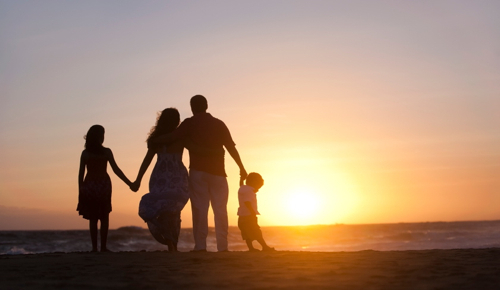
"You give but little when you give of your possessions. It is when you give of yourself that you truly give." – Kahlil Gibran
I have countless holiday memories. Most of them center around faith, family, and traditions.
Very few childhood memories actually include the gifts that I received. I distinctly remember the year that I got a blue dirt bike, the evening my brother and I received a Nintendo, and opening socks every year from my grandparents. But other than that, my gift-receiving memories are pretty sparse. Which got me thinking… what type of gifts can we give to our children that they will never forget? What gifts will truly impact their lives and change them forever?
To that end, here is an alphabetical list of 35 Gifts Your Children Will Never Forget.
Affirmation. Sometimes one simple word of affirmation can change an entire life. So make sure your children know how much you appreciate them. And then, remind them every chance you get.
Art. With the advent of the Internet, everyone who wants to create… can. The world just needs more people who want to…
Challenge. Encourage your child to dream big dreams. In turn, they will accomplish more than they thought possible… and probably even more than you thought possible.
Compassion/Justice. Life isn't fair. It never will be – there are just too many variables. But when a wrong has been committed or a playing field can be leveled, I want my child to be active in helping to level it.
Contentment. The need for more is contagious. Therefore, one of the greatest gifts you can give your children is an appreciation for being content with what they have… but not with who they are.
Curiosity. Teach your children to ask questions about who, what, where, how, why, and why not. "Stop asking so many questions" are words that should never leave a parents' mouth.
Determination. One of the greatest determining factors in one's success is the size of their will. How can you help grow your child's today?
Discipline. Children need to learn everything from the ground-up including appropriate behaviors, how to get along with others, how to get results, and how to achieve their dreams. Discipline should not be avoided or withheld. Instead, it should be consistent and positive.
Encouragement. Words are powerful. They can create or they can destroy. The simple words that you choose to speak today can offer encouragement and positive thoughts to another child. Or your words can send them further into despair. So choose them carefully.
Faithfulness to your Spouse. Faithfulness in marriage includes more than just our bodies. It also includes our eyes, mind, heart, and soul. Guard your sexuality daily and devote it entirely to your spouse. Your children will absolutely take notice.
Finding Beauty. Help your children find beauty in everything they see… and in everyone they meet.
Generosity. Teach your children to be generous with your stuff so that they will become generous with theirs.
Honesty/Integrity. Children who learn the value and importance of honesty at a young age have a far greater opportunity to become honest adults. And honest adults who deal truthfully with others tend to feel better about themselves, enjoy their lives more, and sleep better at night.
Hope. Hope is knowing and believing that things will get better and improve. It creates strength, endurance, and resolve. And in the desperately difficult times of life, it calls us to press onward.
Hugs and Kisses. I once heard the story of a man who told his 7-year old son that he had grown too old for kisses. I tear up every time I think of it. Know that your children are never too old to receive physical affirmation of your love for them.
Imagination. If we've learned anything over the past 20 years, it's that life is changing faster and faster with every passing day. The world tomorrow looks nothing like the world today. And the people with imagination are the ones not just living it, they are creating it.
Intentionality. I believe strongly in intentional living and intentional parenting. Slow down, consider who you are, where you are going, and how to get there. And do the same for each of your children.
Your Lap. It's the best place in the entire world for a book, story, or conversation. And it's been right in front of you the whole time.
Lifelong Learning. A passion for learning is different from just studying to earn a grade or please teachers. It begins in the home. So read, ask questions, analyze, and expose. In other words, learn to love learning yourself.
Love. …but the greatest of these is love.
Meals Together. Meals provide unparalleled opportunity for relationship, the likes of which can not be found anywhere else. So much so, that a family that does not eat together does not grow together.
Nature. Children who learn to appreciate the world around them take care of the world around them. As a parent, I am frequently asking my kids to keep their rooms inside the house neat, clean, and orderly. Shouldn't we also be teaching them to keep their world outside neat, clean, and orderly?
Opportunity. Kids need opportunities to experience new things so they can find out what they enjoy and what they are good at. And contrary to popular belief, this doesn't have to require much money.
Optimism. Pessimists don't change the world. Optimists do.
Peace. On a worldwide scale, you may think this is out of our hands. But in relation to the people around you, this is completely within your hands… and that's a darn good place to start.
Pride. Celebrate the little things in life. After all, it is the little accomplishments in life that become the big accomplishments.
Room to Make mistakes. Kids are kids. That's what makes them so much fun… and so desperately in need of your patience. Give them room to experiment, explore, and make mistakes.
Self-Esteem. People who learn to value themselves are more likely to have self-confidence, self-esteem, and self-worth. As a result, they are more likely to become adults who respect their values and stick to them… even when no one else is.
Sense of Humor. Laugh with your children everyday… for your sake and theirs.
Spirituality. Faith elevates our view of the universe, our world, and our lives. We would be wise to instill into our kids that they are more than just flesh and blood taking up space. They are also made of mind, heart, soul, and will. And decisions in their life should be based on more than just what everyone else with flesh and blood is doing.
Stability. A stable home becomes the foundation on which children build the rest of their lives. They need to know their place in the family, who they can trust, and who is going to be there for them. Don't keep changing those things.
Time. The gift of time is the one gift you can never get back or take back. So think carefully about who (or what) is getting yours.
Undivided Attention. Maybe this imagery will be helpful: Disconnect to Connect.
Uniqueness. What makes us different is what makes us special. Uniqueness should not be hidden. It should be proudly displayed for all the world to see, appreciate, and enjoy.
A Welcoming Home. To know that you can always come home is among the sweetest and most life-giving assurances in all the world. Is your home breathing life into your child?
Of course, none of these gifts are on sale at your local department store. But, I think that's the point.


November 22, 2010
A Thoughtful Guide to Gaining Self-Confidence
"Too many people overvalue what they are not and undervalue what they are." - Malcolm S. Forbes
The importance of self-confidence in our lives can not be overstated.
It is, after all, a lack of self-confidence that causes our lives to be tossed to and fro by the sway of culture. From the very beginning, we see the harmful affects of low self-confidence on our decision-making process while the fear of rejection becomes an all too common presence in our lives. It causes many to adopt the values of the group and engage in otherwise undesired behavior. Simply put, the need for love, belonging, and acceptance becomes stronger than the internal compass within us. And many unhealthy life choices begin to emerge.
In adolescence, this need for acceptance begins to show itself in substance-abuse, underage-drinking, dangerous sexual practices, or mischievous behavior. As we get older, some of these habits remain… but new ones begin to emerge. The desire to find acceptance by impressing those around me with my possessions begins to motivate aspects of my life. And whether it be a certain home-size, vehicle-model, fashion-trend, or latest-technology, many of our purchases are made with a simple desire to keep up with the neighbors and not be regarded as "falling behind." Our need to impress and be accepted becomes more important than wise spending habits.
But self-confidence redirects our life. It begins to realign our desires with the unique heart inside us. It allows us to reject the trends of a culture built on consumption. When it is present in our lives, we begin to believe that we exist for a greater purpose than shopping on Black Friday. The need to impress others with our belongings is replaced by an internal desire to follow our heart and soul… and to embrace the desires deep in our soul is to reject the notion of shopping for acceptance.
To recenter our lives and embrace a healthy view of self-confidence, consider some of these practical tips:
Stop comparing yourself. Reject the desire to compare yourself to others. When we compare ourselves to others, we always contrast the worst things we know about ourselves to the best things we know about others. The inevitable outcome always leaves us with feelings of inadequacy and despair. Become wiser. Tell yourself that you can't possibly be making a fair comparison. And reject the idea altogether.
Celebrate your uniqueness. Your life was never meant to be lived like everyone else. You don't look the same, you don't sound the same, your talents aren't the same… and your deep-held values are unique. Throwing that away just for the sake of being accepted by others is one of the cruelest things that you can ever do. And it will always prevent you from fully living our life. Instead, champion the things that make you unique and find confidence in them.
Focus on the positives. Change your thinking. Focus less on the negatives and more on the positives. Stop dwelling on the negative messages of the past and begin centering yourself on the positive traits in your life today.
See past failures as learning opportunities. We've all tried and failed at some point in our lives. Confident people look back at failures and view them as learning experiences. In that way, failures can actually provide greater self-confidence moving forward. Learn from your mistakes and try again. Remember that it's not over when you lose, it's over when you quit.
Help someone. One of the most important steps to finding self-confidence in your life is to give yourself to others. Serving another person almost always results in the healthy realization that you are important in this world, that you have something to offer, and that the world is more beautiful because of your presence. See a need around you? Whether it be a need for time, finances, or a listening ear, meet it today. And the life you change just may be your own.
Begin realizing a life goal. Intentionally and specifically, begin working towards a life goal. Know that taking the first step is a momentum builder and can generate confidence in your life. There is a powerful difference between "I want to…" and "I'm beginning to…" So write the first page, run the first mile, or meet the first person. You know what you want to accomplish and you know what the first step is. Stop telling yourself it's out of reach and take the first step.
Accept your weaknesses. While dwelling on our weaknesses leads to a lack of self-confidence, accepting them is an important step in developing it. First, it keeps us from unhealthy delusions of grandeur. It embraces that we are not perfect and forces us to live our lives in a healthy need for others. Secondly, it provides us with the foundation to accept failures when they arise. We are not caught off-guard when we fail. Instead, we are simply again reminded of our need for others to compliment our weaknesses.
Be known and loved. There is no greater key to self-confidence that being intimately known and genuinely loved by another. Allowing another human being into the deepest depths of our heart is one of the single most difficult acts in the world today. But doing it (and being loved despite of it) breathes life into our soul and builds confidence in our inner-most being… and this confidence continues to grow as the commitment to each other deepens. (On a related note, take a moment this week to better know and love your child… it's one of the greatest gifts you can ever give them).
To be clear, the importance of self-confidence in our lives can not be overstated. It provides the motivation to pursue our passions. It provides the foundation to reject the claims of a consumerist culture. And it provides the incentive to live the life you've always wanted to live.

[image error] Share on Facebook

November 18, 2010
Offering Encouragement From Mile One
"Those who are lifting the world upward and onward are those who encourage." - Elizabeth Harrison
Last May, I ran my first marathon. It was an amazing experience and I hope to repeat it again in the future. One of the highlights of the experience was the encouragement that I received from others during the race. Spectators lined the course from Mile 1 to Mile 26 – all for the purpose of watching and encouraging the competitors. It was amazing to see so many people spend their entire Sunday afternoon standing in their front yard clapping and cheering. And it was even more surprising to see some of them give their own resources to offer total strangers Gatorade, oranges, or popsicles along the route. They made the experience more enjoyable and their words of encouragement propelled many of the runners (including myself) across the finish line.
In many ways, the process of minimizing is similar to a marathon. It can be difficult and time-consuming to remove the nonessentials from our homes. The emotional parts of the process sneak up on us. And it requires endurance and self-discipline to break the trend of consumerism in our lives. But when we finish, it is truly an amazing feeling.
Encouragement can be so helpful in the minimizing process. To know that others have taken an interest in your journey and are cheering for your success can be influential and helpful (that's why I included the principle, "Share your Story" in our first e-book). It is very comforting to know that you are not alone in the process.
To that end, would you consider offering some online encouragement to others as they begin their exciting journey towards minimalism? To get you started, each of the following 8 posts recount an individuals' recent decision to embrace a minimalist lifestyle. Each of them share a different story. Most of them are not found on blogs in the "minimalist niche." They are just typical human beings (like you and me) who have decided to embrace a lifestyle of less. Go enjoy their stories. And as you do, leave a comment of encouragement letting them know we are all cheering for them.
Katy, Single Supplement. "I'll Take Cash, Please."
A Joy Flower, Journey to Financial Freedom. "Why Be a Minimalist?"
Lauren, Myriad Musings. "And When You're Living In America…"
Carwin, Less Please. "First Things First."
Lesley, Life As I Know It. "Once In a Lifetime."
G. Lanz, Eye of the Maggot. "Becoming a Minimalist Teenager." (Comments are closed).
Richard, Fibonacci Faith. "The Perfect Storm: Finding Liberty in Simplicity."
Foy, Foy Update. "Less Stuff, More Action."
In return, allow their stories to encourage you to live more by owning less. And remember again how exciting it is to be part of such an important movement.

[image error] Share on Facebook

November 15, 2010
The Freedom of Less
Editor's Note: This is a guest post from Francine Joy of Miss Minimalist.
"Freedom is the oxygen of the soul." – Moshe Dayan
People often ask me, "What's so great about being a minimalist?" I usually answer with one word: freedom.
And by freedom, I don't necessarily mean ditching your house, ditching your job, ditching your responsibilities, and traveling the world with a backpack (though yes, I've done that).
The freedom I'm talking about runs much deeper. It's long-term, it's sustainable, and it courses through your veins even when you're doing the 9-to-5, making mortgage payments, and putting a child or two to bed each night.
How Stuff Enslaves Us
Excess possessions have the power to enslave us in three ways:
1. Physically. Let's face it, stuff is cumbersome and difficult to transport. So the more we have of it in our rooms, closets, drawers, basements, attics, and garages, the less nimble we become. We may even pass up promising jobs or other opportunities because of the hassle of moving it. In other cases, our stuff builds up to form a prison around us: have you ever avoided a social visit because your house was too messy for company?
2. Psychologically. Too much stuff can weigh on our spirits, and make us feel heavy and lethargic. It's almost as if each possession is tied to us with a piece of rope, dragging behind us as we try to move around. Excess things not only clutter our homes, they clutter our minds – making us too distracted or overwhelmed to think clearly and accomplish anything.
3. Financially. Stuff can also enslave us via the debt used to pay for it. The more money we owe, the more sleepless our nights, and the more limited our opportunities. Consumer debt can keep us working jobs we don't like, simply to make the minimum payments. It can delay (or destroy) our plans to make a career change, go back to school, or start our own business.
How to Break Free
Fortunately, adopting a few minimalist techniques can help us break free of those shackles:
1. Declutter, declutter, and declutter some more. Get rid of at least one thing each day, and you'll be 365 items lighter by the end of the year. Better yet: pick an area of your home (a room, a closet, a drawer) and completely empty its contents. Put back only those items you regularly use, or truly love – and donate or sell the rest. Decide what to keep, rather than what to toss.
2. Realize you are not what you own. Sometimes we fear that getting rid of certain things means getting rid of part of ourselves. But remember: you are not the college notebooks and swimming trophies packed in the basement; you are not the designer shoes and handbags lining your closet; you are not the books, gadgets, craft supplies, heirlooms, or tchotchkes in your living room. Your memories, dreams, and ambitions aren't contained in these objects – they're contained in you.
3. Ask "Why?" before you buy. Don't bring another item into your home without extensive questioning – especially if it means charging it to a credit card. Ask the following of each potential purchase: "Do I really need you?" "What value will you add to my life?" "Are you worth the extra hours I'll have to work for you?" "Are you worth the space I'll have to devote to you?" Curb impulse purchases by giving yourself a cooling-off period: instead of buying something immediately, wait 36 hours and see if you still "need" it.
These simple strategies go a long way towards giving us the upper hand over our possessions. When we clear our homes of the excess, stop identifying with our stuff, and put the brakes on new accumulation, we gain control – of our homes, our lives, and our futures.
Every time we toss (or choose not to acquire) an unnecessary item, we gain a little bit of freedom: from paying for it, storing it, cleaning it, repairing it, maintaining it, protecting it, insuring it, worrying about it, and schlepping it around.
And all those little bits of freedom add up to something big: more time, money, and energy for what's truly important to us. Not necessarily for traveling the world, but for playing with our kids, relaxing with our friends, pursuing our hobbies, exploring our interests, and embracing new opportunities.
When we eliminate the distractions of excess stuff, we gain the freedom to dive into life, deepen our relationships, and discover our full potential. And that's what's so great about being a minimalist.
***
Francine Jay is the author of The Joy of Less, A Minimalist Living Guide: How to Declutter, Organize, and Simplify Your Life. She blogs about living a beautiful life with less stuff at Miss Minimalist.
[image error]
[image error] Share on Facebook


